"Eric Clapton just tried your amp, and he’s asking if he can have it.” Über producer Bob Rock learned the secret sauce behind Alexander Dumble's amps during his long friendship with the famed designer
The producer shares tales of how Dumble's magic transformed many of the prized amps he's used on his productions
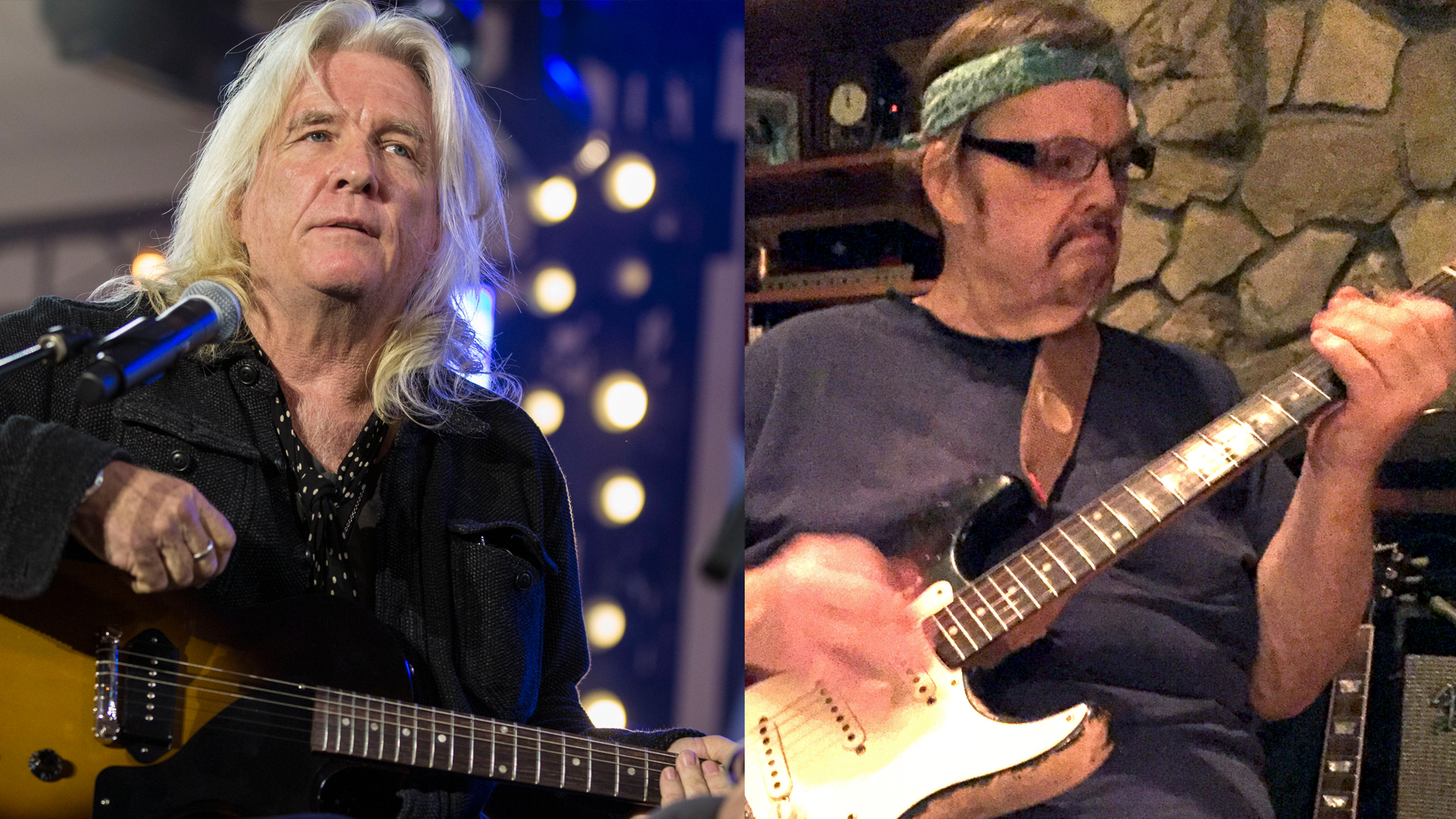
All the latest guitar news, interviews, lessons, reviews, deals and more, direct to your inbox!
You are now subscribed
Your newsletter sign-up was successful
Since his passing in January 2022, boutique amp guru Alexander “Howard” Dumble’s deep mystique has morphed into legend. His precious works have become practically unobtainable. When one of the 300 or so amps he created for the likes of Carlos Santana, Eric Johnson or David Lindley comes up for sale, which is very rare, it can fetch an exorbitant sum. Later in 2022, Jason Isbell reportedly bought a 1995 Overdrive Special from producer Dennis Herring via Reverb.com for a whopping $175,000!
Iconic producer Bob Rock wasn’t interested in Dumble’s overdrive, but he was so enthralled with the pristine clean tones of Dumble-modified Fenders that he kept ordering one after another. Over the course of time, he developed a special friendship with the mythological amp whisperer, whose every creation was a unicorn personally crafted to suit the style of its master. When Phil “Philbillie” Milner — respected guitar tech to Bob Weir and Joe Satriani — said he was doing some work on Rock’s pieces at his Maui studio, I asked him to relay that if Rock ever wanted to talk turkey, we were game.
Bob was onboard. What ensued is an aloha buffet for Dumble freaks and the Dumble curious.
How did you catch Dumble fever?
I was producing Michael Bublé’s cover of Van Morrison’s “Crazy Love” with the incredible guitar player Michael Landau on the session. He gave the engineer an XLR cable to connect to the line in on his amp to the Neve console, and when he started playing we went, “Oh my god, what’s going on?” There was no EQ or anything, and it sounded amazing!
When I told him how fantastic it sounded, he said, “It’s a tweed Fender Bandmaster that Dumble tweaked for me.” That modification was called a Slidewinder. Michael mentioned that Dumble had been doing this sort of thing his whole life, and he would check if I could go see him, because that’s truly the whole story about Dumble. He’s got to meet you. Michael set it up and said, “Get a re-issue tweed Deluxe, and he’ll do a ‘Tweedle Dee’ mod.”
How did your meeting go with Dumble?
All the latest guitar news, interviews, lessons, reviews, deals and more, direct to your inbox!
I brought my ’63 Strat to his place and we got along amazingly because he’s a total geek, like me. He said, “Before I modify your Deluxe, I want to hear you play guitar.” He had a Tweedle there. I plugged in and went, “Whoa, this is a Deluxe?” He confirmed, and as I started playing he said, “That’s what I do. I voice the amplifier to your playing, Bob.” When I came back and turned on my amp after modification, I was like, “This is the best amp I’ve ever heard in my life.”
I'm kind of a gearhead. I told him that I’ve got a warehouse full of Fenders, including a blackface Super Reverb. All the blues players where I grew up in Victoria, Canada, used Supers because nobody could afford a Marshall, and the Super Reverb was sort of the poor-man’s Marshall. Mine never sounded very good, but Dumble fixed it up and then again, “Oh my god, this is the best!” So I continued to send my Fenders to him.
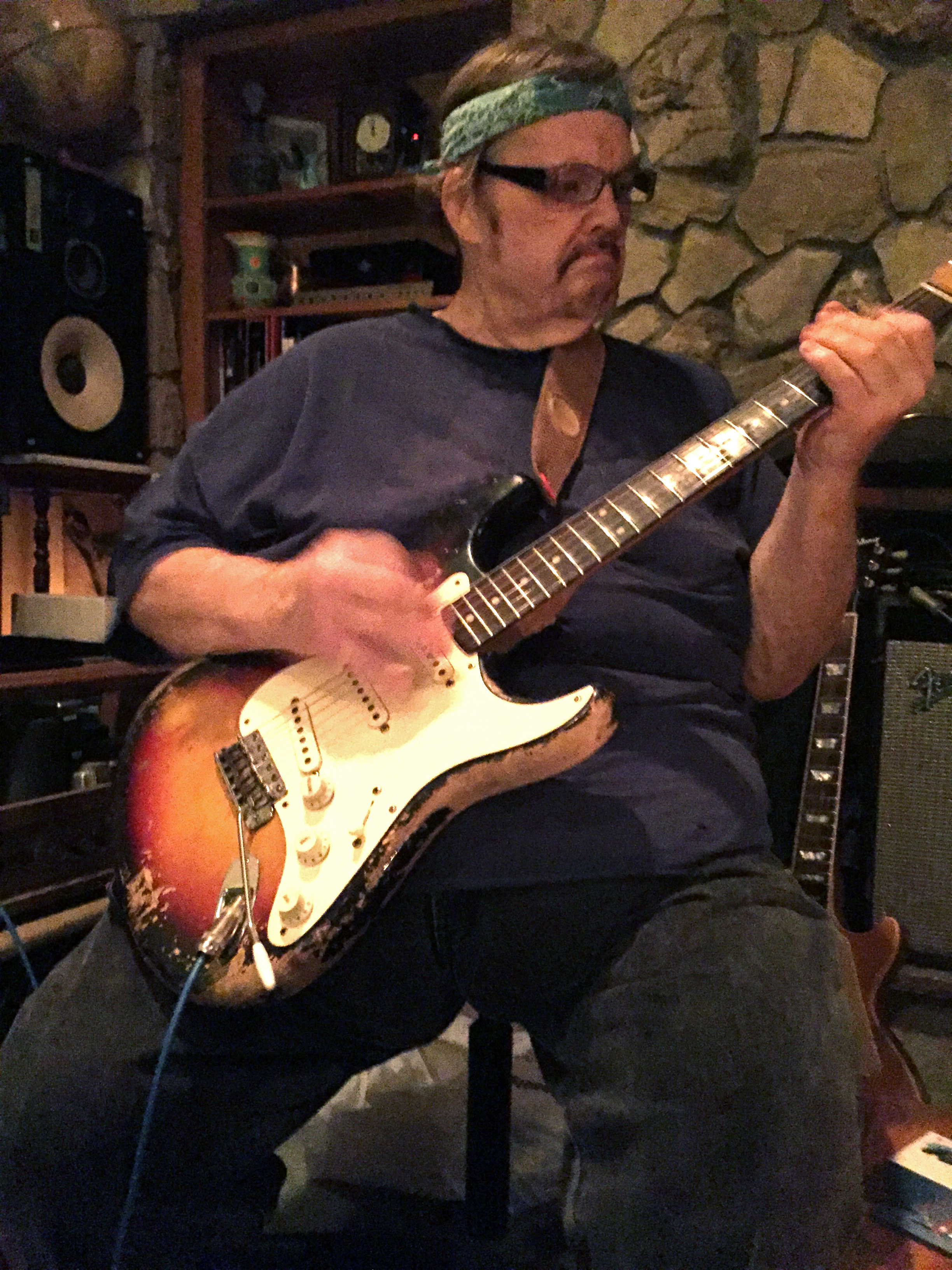
You never got a Dumble model such as an Overdrive Special?
The Overdrive Special is for virtuoso players like Michael Landau. I heard him play his at the Baked Potato in Los Angeles, which was packed during a NAMM Show. He was playing with his fingers, and I could hear the articulation of his touch on every note from across the crowded room.
But the distortion channel isn’t really me. That’s simply not my kind of distortion. So I kept getting Fenders modified. I wound up with nine amps. I’d visit him every time I went to L.A., and he became an amazing friend.
How would you describe the man?
He’s hard to describe. I guess I’d call him a savant. He knew so much about everything, and his house was full of gear, everywhere. I went to the bathroom, and the bathtub was full of Celestions. He was eclectic, but just a beautiful man.
We talked about everybody that he worked with, and one thing he didn’t like was when players would sell their Overdrive Specials because they were voiced specifically for them. Nobody got that. You had to go there and spend time with him to truly understand. If you didn’t go sit down with Dumble in his place and have him go through his process, then you bought an amplifier that was voiced for some other player. You'll never have the personal touch, and that’s truly what it’s all about. And he had to like you as well. laughs
It sounds like he loved you. I mean, nine amps?
He went beyond amps, by the way. When I asked him why all the Fuzz Faces from the ’60s sound like shit, he just laughed. And when I mentioned that I had a Trem Face, he lit up saying if I’d give that to him, he’d modify my Fuzz Face. It took him a year to finish, but he made it so quiet with the most amazing transients and harmonics. It’s unbelievable. That’s why Eric Johnson’s got one.
Dumble got it all. And he would tell such stories. He was in a band called Captain Speed that warmed up for Hendrix at the Golden Bear in Huntington Beach. He became friends with Jimi, so his story goes back to Sunn amplifiers too. He knew everything about every amp.
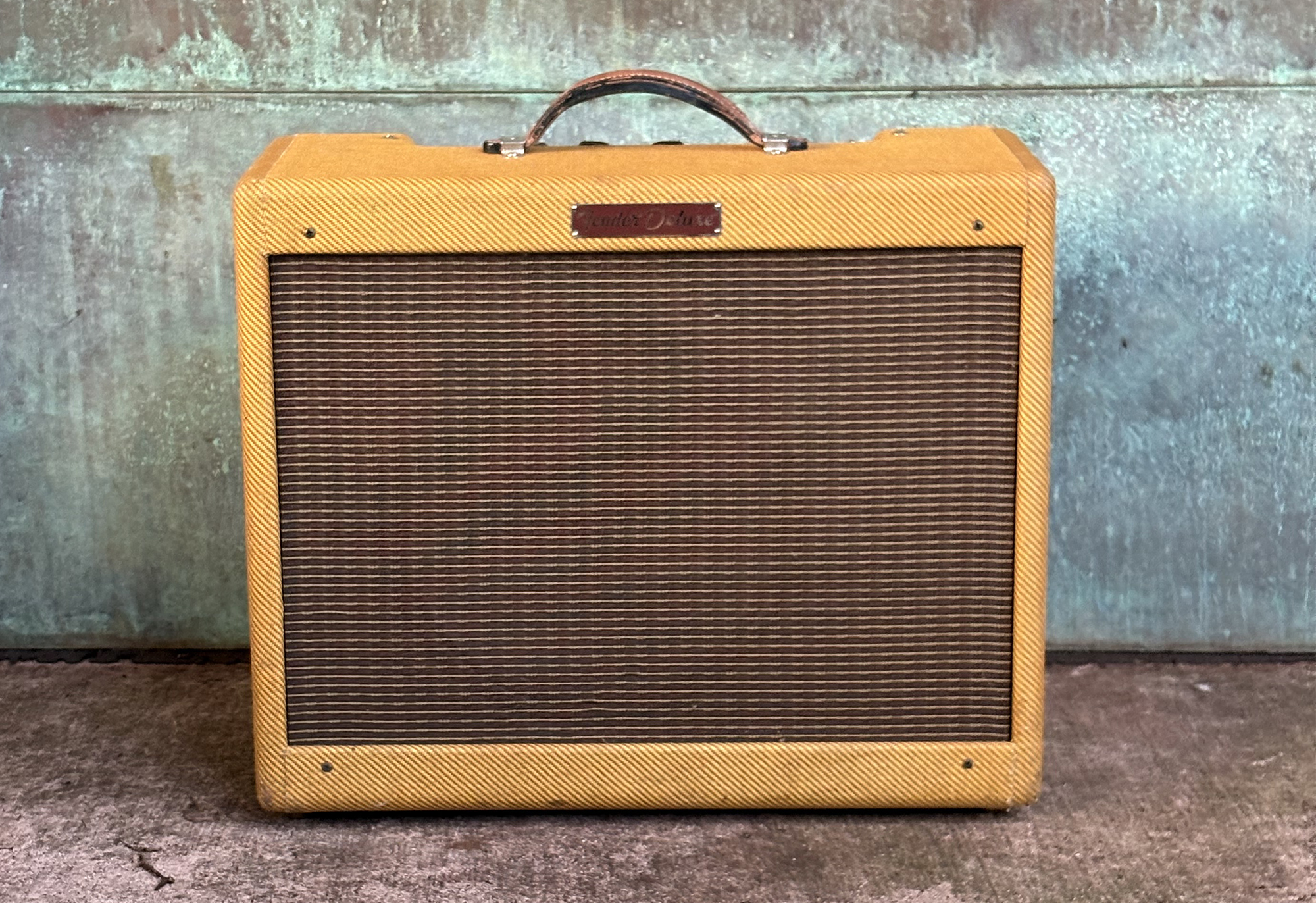
What are the others he modded for you?
Well after the Super, I got a ’59 Bandmaster 4x10 that was all beat up. So I sent that to Dumble, and he transformed it into a head and cabinet that sounds glorious.
I played a charity New Year’s gig at [manager] Shep Gordon’s with the guys from the Doobie Brothers and Alice Cooper, and I brought the Bandmaster and the Tweedle for Richie Sambora to play. The Bandmaster’s volume was on one half, but they said it was too loud, so I turned it off and had just the Tweedle. Remember, that’s a modded tweed Deluxe, which is a low-wattage combo. But it’s got an open back and the sound was filling the stage. They said it was still too loud.
Now, understand that all the Alice Cooper players used 100-watt Marshalls. We wound up turning the Tweedle around and putting a blanket over it because it was still louder than the 100-watt Marshalls! That says it all about Dumble.
There’s something indescribable about the sound, but I can say that if you look at Dumble’s wiring, it’s a masterpiece — the soldering and everything about it. People say, “Why are Dumble’s amps so expensive?” Because he’s a craftsman. It simply doesn’t get any better.
People say, 'Why are Dumble’s amps so expensive?' Because he’s a craftsman. It simply doesn’t get any better.”
— Bob Rock
He did my blackface Deluxe as well, and how it happened was as incredible as how wound up sounding. I was in Los Angeles and had to get to a session. There was a buzz in the amp that we thought might be attributable to the reverb. I brought it to him at nine o'clock in the morning and said, “I’ve got to be out by eleven.” He tore off the circuit board, rewired and re-soldered the whole thing in an hour and a half. The amp was suddenly so articulate. I could only shake my head and admire his genius.
He also modified my blackface Twin. Understand that the clean circuitry in the Dumble Overdrive Special is his modification of a blackface Twin, which he calls an Ultraphonix. So I’ve essentially got the Overdrive Special without the distortion, and I’ll simply say again that it’s incredible. By the way, I’ve also got one of his cabinets.
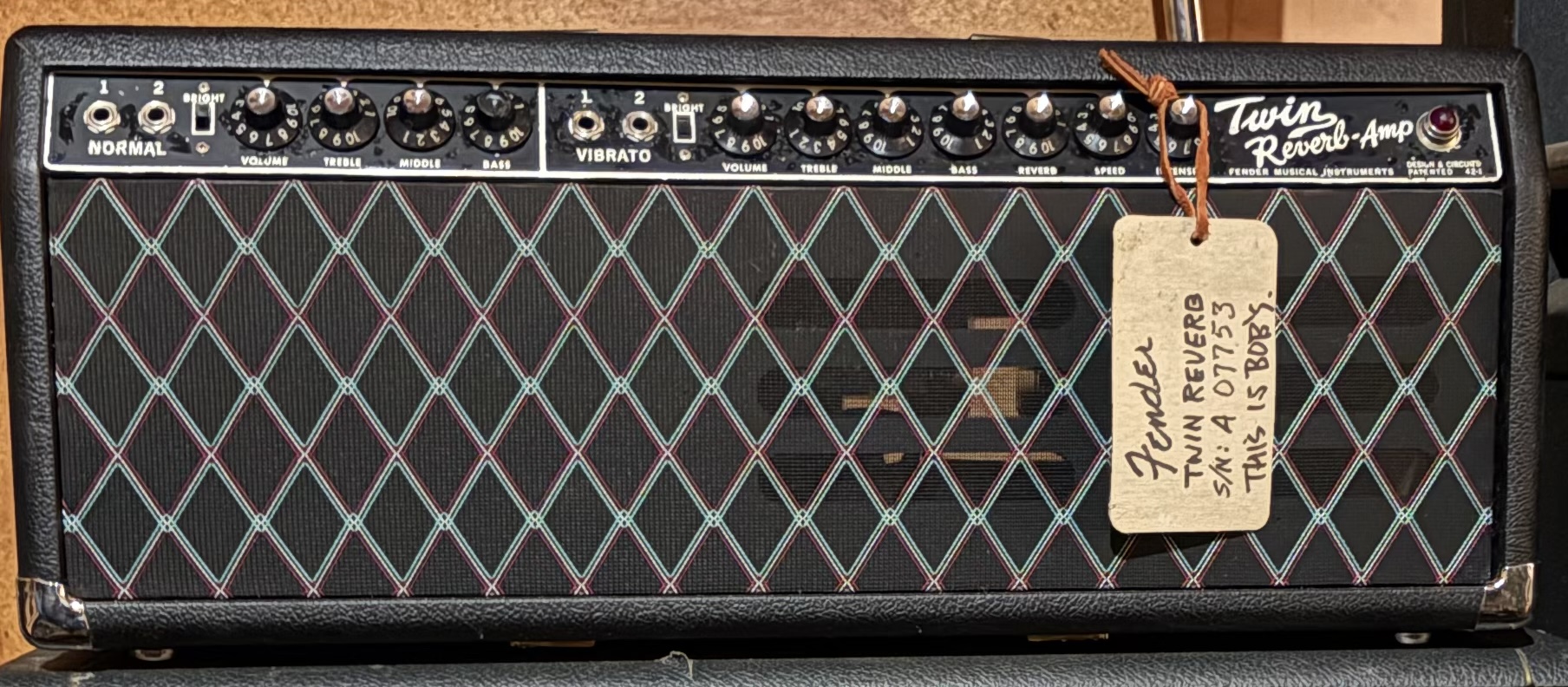
Nobody ever seems to talk about the Dumble cabinet, so would you please?
Well, the reason why nobody does is because you can’t lift it. A Dumble cabinet weights about 150 pounds. [laughs] But Stevie Ray Vaughan used two Steel String Singers loaded with E-V speakers. I can only imagine how heavy that rig was to move around.
He certainly wasn’t carrying it by himself.
No, he wasn’t. But the sound is worth it. It’s so clean!
I helped connect the great Canadian guitarist Colin James with Dumble. He bought a Steel String Singer with two cabinets, which he didn’t like because the tone wouldn’t break up. It’s 200 watts of clean power. So I lined it up for Colin to sell the amp to Kirk Hammett, and he had a similar reaction. Kirky still uses it, but remember, Dumble builds his amps to the specific touch of the player. I think David Lindley and Lowell George were among the first players to have Steel String Singers built for them.
Anyway, I also have a tweed Champ that sounds incredible because Dumble completely rebuilt it. What I watched him do is a work of art. Again, there was the impeccable soldering, and everything’s grounded. There's no noise in my Champ, just like there’s no noise or hiss in my Fuzz Face. That’s unheard of, literally. We recorded a solo for a song on Richie Sambora’s album. He played a Strat through the Champ with the volume just above three. The sound is huge and beautiful, almost like the Landau solo.
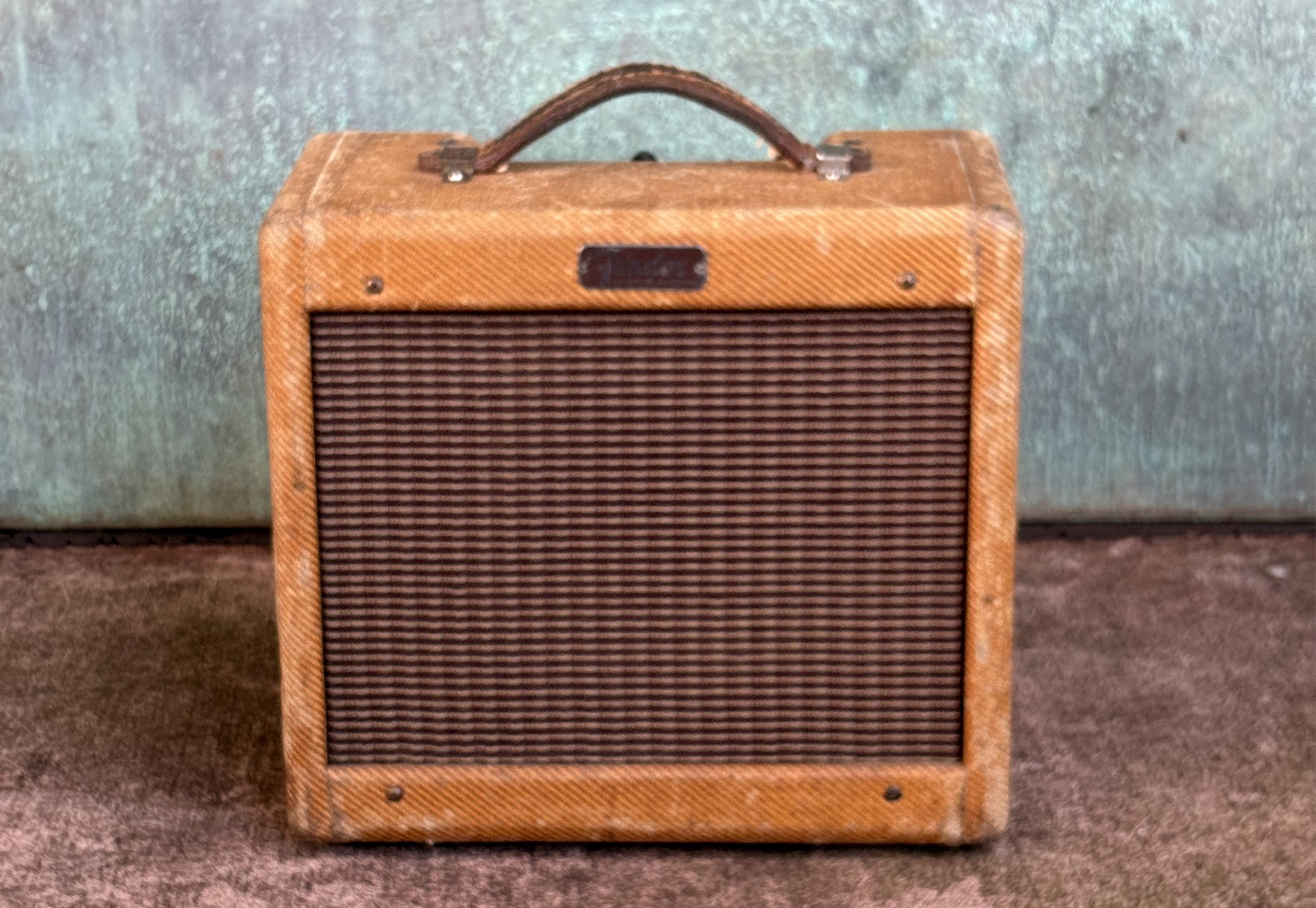
Do you remember which Sambora song?
I do, but it hasn’t been released yet, so you can’t hear it yet.
Oh, well then we’ll look forward to that. Is there perhaps a song for each of your Dumble-modded amps that you can pinpoint for sonic reference?
No. But now I’ll tell you the funniest story ever.
The tweed Bandmaster, which is a 3x10, is supposedly what Pete Townshend used on Who’s Next for songs such as “Baba O’Reilly.” I got the whole setup that he reportedly used a ’59 Gretsch Country Gentleman, a volume pedal, and that amp. When Fender reissued the tweed Bandmaster, I got like the second one. I turned it on and, no offense to Fender, but it didn’t sound great.
So that’s when I sent it to Dumble.
After he finished working on my tweed Bandmaster, he phoned me up saying, “I’ve got a great story to tell you. EC [Eric Clapton] is here. He asked about your amp. I told him it was for Bob Rock, and he asked if he could try it. I let him, and now he’s saying, ‘I want this amp.’”
Understand that Clapton is one of my idols who was such a huge influence when I was growing up. I didn’t have his fingers, but now he wants my sound? [laughs] I’m thinking, Hmm, do I give it to Eric Clapton?
Did you?
No. Dumble made two just like it for Eric and he used them on tour. So there are only three in existence: mine and the two Dumble made for Clapton.
That is a great story! Got any more?
Well, there are more amps. There is another Deluxe, a tweed Bassman, a Supro Coronado he rebuilt for me, and a low-powered tweed Twin, which was another a re-issue. Some of the Fenders Dumble modified for me are original issues, like the blackface Twin and the blackface Deluxe. But Dumble could work from a re-issue as well because he would take everything out of it except what he needed. There are still a lot of great components.
He phoned me up saying, 'I’ve got a great story to tell you. EC is here. He asked about your amp.’"
— Bob Rock
Was there a menu of mods from which to choose?
No. You get the amp. He listens to you play and makes modifications based on what he hears. He signs the amp, and then gives you a folder filled with documentation proving the modifications made to your circuitry. You can’t give that to anybody else, and I don’t.
Can you offer a more general description?
Well, Dumble met Leo Fender, and I can tell you that he knew absolutely every circuit Fender ever made by heart, which is why he could take apart and re-build a blackface Deluxe in 90 minutes. For the Tweedle Dee, he kept the transformer and the output transformer. He replaced everything else except the Celestion Greenback speaker.
Here’s the secret sauce: He’s got old stock and NOS, or “New Old Stock,” from the ’50s and ’60s of every component, from the resistors to the caps. He measures everything.
And he took the time. All my amp modifications took six months. Not consistently, because he’s working on several amps simultaneously, but that’s why they cost what they did. He’d charge a hundred dollars an hour and take a year to build an Overdrive Special. It’s worth every penny.
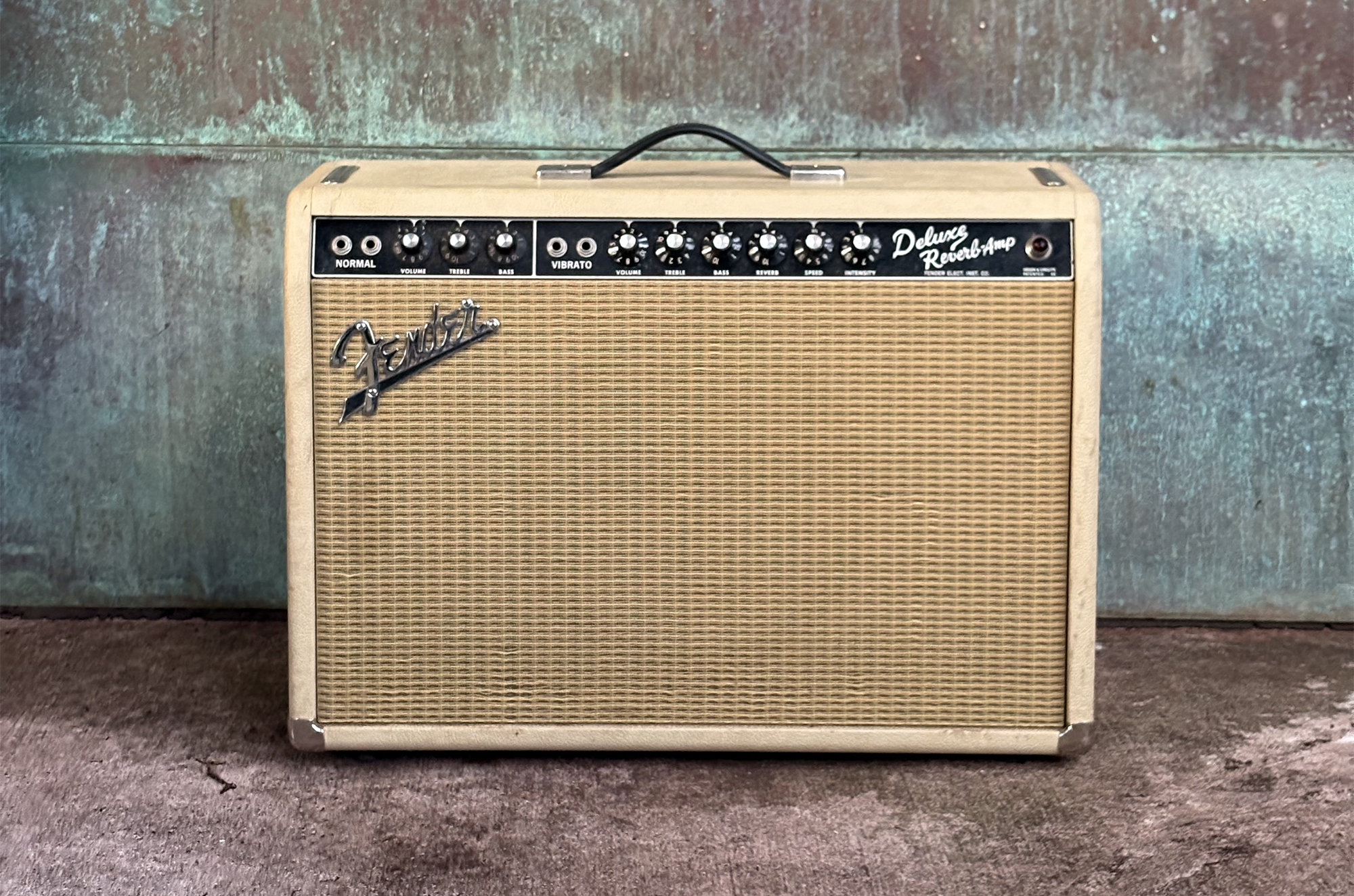
What do you think of Universal Audio’s Dumble-simulation pedal, the UAFX Enigmatic ’82 Overdrive Special Amp?
What that box is good for, along with Kempers and Fractals, is making demos, so you get a sound quickly. I’ve used those exact things on records when it’s about getting an idea done quickly. But when you really want to feel it, use the real thing
The last thing I bought for Dumble to work on before he passed away was a Marshall. That was something we’d meant to do but never got to do. He advised me to buy a 1973 50-watt Marshall head because that was the last year they were hand-wired.
So I bought one, but then he passed away. I got Dave Friedman to look at it and put in an overdrive channel because it was really clean. Now it blows me away! It’s one of the best amps I own.
What are your thoughts on all the Dumble clones and D-style amps such as Two-Rock and Fuchs?
In addition to Dumble’s craftsmanship and the time he spent on each amp, those clones are just copies of the circuitry. They are not custom voiced to suit a specific player, and that’s what so special about Dumble.
Now, the Burst Brothers from Guitar Center [Drew Berlin and Matt Swanson, new owners of the Dumble company], they’re going to start making Dumbles again.
What do you think about that?
Well, it’s happening through Dumble’s family, and I understand that, but I don’t know. I mean, he’s good friends with Drew. I guess he would be okay with it. But the personal touch is missing. Sure, they can copy an amp. But whose amp are they copying? Sonny Landreth’s amp, Michael Landau’s amp, or what I’m not sure.
He advised me to buy a 1973 50-watt Marshall head because that was the last year they were hand-wired."
— Bob Rock
I suppose as a potential buyer, the best one could do would pick the Dumble clone of the player you have the most in common with stylistically?
But you’ve got to remember one thing: You can buy all the gear a particular player used, and I’ve done this with various rigs used by Jeff Beck, Jimmy Page and more. It all still comes down to the fucking hands. Whether you’ve got a Dumble amp or a copy, your sound still comes down to your fingers.
Amen. But I’d still love to hear you talk about those rigs!
I’d be happy to have another conversation.
As it turns out, Bob Rock is a total guitar zealot who has a treasure trove of killer vintage gear including stuff that was actually owned and played by the likes of Jeff Beck, Jimmy Page, and David Gilmour. Stay tuned for more Rock On…
Jimmy Leslie is the former editor of Gig magazine and has more than 20 years of experience writing stories and coordinating GP Presents events for Guitar Player including the past decade acting as Frets acoustic editor. He’s worked with myriad guitar greats spanning generations and styles including Carlos Santana, Jack White, Samantha Fish, Leo Kottke, Tommy Emmanuel, Kaki King and Julian Lage. Jimmy has a side hustle serving as soundtrack sensei at the cruising lifestyle publication Latitudes and Attitudes. See Leslie’s many Guitar Player- and Frets-related videos on his YouTube channel, dig his Allman Brothers tribute at allmondbrothers.com, and check out his acoustic/electric modern classic rock artistry at at spirithustler.com. Visit the hub of his many adventures at jimmyleslie.com
